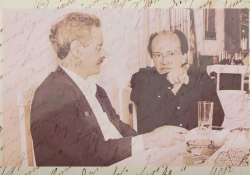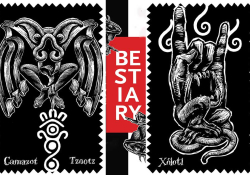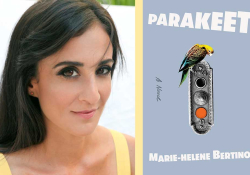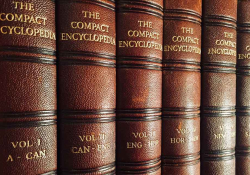Hill Elementary

Translator’s note: Li Juan is a well-known and prolific essayist and poet in China, born in 1979 in Xinjiang. Writing in the New York Times, Eric Abrahamsen, an American translator of contemporary Chinese literature, notes that Li Juan “may be as far outside of the system as Chinese writers are able to get and still publish. She lives and writes in the Altay region of Xinjiang, in western China, musing on nomadic lifestyles and the turning of the seasons” (“The Real Censors of China”). To date, very little of Li Juan’s work has been translated into and published in English, despite the fact that she won the 2011 People’s Literature Award for Nonfiction and has published several books of essays. The biographical information accompanying her appearance at a conference last May, “Writing Contemporary China: A Forum with Five Leading Chinese Writers,” notes that “the resilience, determination, compassion, and the reflections on the profound questions concerning the cosmos and human life characterize her inner voice as both strong and lyrical.” “Hill Elementary” is a personal essay, from her collection Night Walks You Must Sing, about Li Juan’s childhood living with her grandmother and great-grandmother. – Yiqiao Elaine Chang
* * *
I used to go to a grade school that sat on a hilltop, so the hill was named Elementary Hill, and the school was called Hill Elementary.
There were over two hundred bluestone steps leading to the top of the hill. I was seven on the day my grandma took me to the school for kindergarten registration. Halfway up the hill, my legs refused to carry me any further, so grandma carried me the rest of the way to the top.
I was seven and grandma was seventy-five. That year I had just returned to inland China from Xinjiang. Not yet acclimatized, I suffered a canker sore outbreak all over my body, especially on my face—tons of sores and scabs covered with blood and pus. I felt searing pain just to take a bite of food, let alone to open my mouth to talk.
I did not cry when I was very young. I was never a crybaby. My mother said the only time I cried out loud was right after birth when the doctor held me upside down, slapping my bottom to clear my airways.
If I was sick, hungry, or stumbled and fell, the most I did was groan for a little while. Even at three, when my leg was run over by a car, I did not cry much. My mother said I was born gentle and quiet, an easy baby.
But as I grew older, I suddenly began to cry. It was devastating. I cried hysterically. I threw fits. I rolled around on the floor, refusing to eat or go to sleep. I became neurotic. I bit whoever tried to pick me up. I went beyond the bounds of reasoning. My heart was filled with hate. What happened to me? What did I see? Did something frighten me? What made me so desperate?
* * *
I went to Hill Elementary School. That was almost two decades ago. But today at dinner, my grandma asked me out of the blue: “Do you still remember what happened when you went to Hill Elementary?”
I looked here and there in that vast and boundless space of childhood but did not find that sentence. I must have erased it from my memory.
“Yes, I do.”
“Then do you remember something you said?”
“What?”
She repeated the sentence aloud.
Her words sent me back to my past immediately. I looked here and there in that vast and boundless space of childhood but did not find that sentence. I must have erased it from my memory. But I never expected it to go grandma’s way. She carried the memory inside of her for me. This year she was ninety-two, and I was twenty-four.
“From the day you said that, I began to go to Hill Elementary every day to pick you up. I always sat in the foothill pavilion by the pond and waited for you to finish school.”
Then as if in a dream, she started to whisper my nickname: “Yao-yao, yao-yao. . . . Where is my Yao-mei-zai?”[i]
* * *
I went to school at Hill Elementary. Did I start the crying right after I said that sentence to my grandma? This started the cry of my life, and it started my feeling out-of-place, feeling guilt and feeling hatred. . . . I said that sentence, maliciously, from a child’s mouth, pretending to be naïve. That sentence, I should never have to repeat it. Now my grandma was ninety-two. She was dying, and after her death nobody would know! I started to talk about the past with feelings of deathly guilt and sadness. I had buried that sentence over and over again, and through that my redemption began, redemption from the pride and ignorance of my past. It was also my revenge.
* * *
I went to school at Hill Elementary. Every day I walked up two hundred steps and went into the schoolyard with my backpack. My backpack looked ugly. It was full of patches. At that age, I already knew the difference between a few things—man and woman, beauty and ugliness, good and evil. I was seven, but I already had a sense of shame. With the ragged schoolbag on my back, I knew the difference between me and the other students. I was seven, and I was the oldest in my kindergarten class.

When my mother was still taking care of me, she was always reluctant to send me to school. She hated to wake me up from my sound sleep. So I was always late for school and, as a result, suffered from physical punishment. One day when my mother went to see me at school, it happened that I was standing in the corner in shame. Everybody else was in his or her seat, but I was the only one that had been asked to stand in the back, turned away from the class, with my nose pressed against the wall. So she went to quarrel with the teacher and took me home right away. She bought textbooks for me and began to teach me how to read herself. At that time she was still a farmworker. During the day she had to work in the field, and in the evening she came home to play blocks with me and read me fairy tales. Such days seemed endless as I played quietly by myself on the edge of the Gobi Desert among rows of white poplar trees. Farther away were the boundless fields. Tall tractors with powerful engines zipped by this way and that. My mother was somewhere there.
I played quietly by myself on the edge of the Gobi Desert among rows of white poplar trees. Farther away were the boundless fields.
* * *
I went to school at Hill Elementary. I was brewing a sentence in my head. I even said it to my grandma, pretending I was so naïve. This made her feel ashamed of me. From then on, she would go to a waterside pavilion at the foothills of our school to wait for me and walk me home. Lotus flowers covered the pond next to the pavilion. A winding bridge named Wo-Bo spanned one corner of the pond, and a terrace was built in the middle with the surface just above the water, while the pavilion was on the other side of the terrace. That was where my grandma always sat. She would look out onto the hillside for me. It was crowded in the pavilion, all old people sitting inside. They were telling stories, singing local opera, or just having a chat. My grandma was also an old person, but she was different from them. You could tell just by looking at her. She was a scavenger. There would always be something in her hands, something she just picked from a trash can, like pieces of cardboard, an empty wine bottle, a roll of scrap wire, or a match. She dressed in rags, but her smile was cheerful and at ease. She saw me coming. She waved at me. She stood up to meet me.
My grandma was also an old person, but she was different from them. You could tell just by looking at her. She was a scavenger.
I went to school at Hill Elementary. I discovered that everyone but me already knew how the world worked. I was left out. Grandma was the only one from my family who sat at the foothills pavilion every day waiting for me to go home. She was always there, rain or shine. She held a piece of cardboard in one hand, an empty bottle in the other; then we headed home. When we passed the City Temple Market outside of the southern city gate, we would get half a pound of meat. When we passed the big trash cans in front of the government office, we would stop and rummage through them one by one. I stood close to her, leaning on the rim of the trash can, pointing: “There, over there . . . a bottle cap.” I was a kid growing up in a junkyard. Our room was heaped with junk. Once grandma brought it back, I would help her sort through it. Put the iron wires here, broken glass there, rags here, and recycle paper there. I was quite an expert on scraps. My hands happily whizzed through the work. I knew they were all useful things, and we could get money from them. Our room was piled high with junk. We were staying in a sky well,[ii] terribly small and cramped. It was a wooden structure, no more than one hundred square feet, dark and damp, with hundreds of years of history. Besides endless amounts of junk in the room, there were one stove, fifty coal balls, one Sichuan kimchi jar, one bed, and another folding bed that only opened at night. My grandma lived here; I lived here; and my great-grandma, the 100-year-old mother of my grandma, also lived here. I was seven. My great-grandma was the first person in my life that I failed to understand, and the first person that I was sorry for. Later, I felt that her death had something to do with me.
* * *
I went to school at Hill Elementary. I felt that there was nothing more I wanted to say about this. Every word I wrote was a confrontation with my own cruelty. Those things from the past, those unchangeable things, had been left behind, but now they piled high into my future. I could not walk around it. I could not. There was no getting around some facts, like the fact that I went to Hill Elementary for school. The foothills pavilion by the bridge of Wo-Bo, I could not get around it either.
Every word I wrote was a confrontation with my own cruelty. Those things from the past, those unchangeable things, had been left behind, but now they piled high into my future.
I walked down long steps with my classmates after school and left them to head to the pavilion. There, Grandma would be holding an empty wine bottle in one hand but a fresh, brown-sugar-filled naan in another! She raised her arm and waved the bread at me, almost proudly. I did not want to say anything more than that.
* * *
Still, I went to Hill Elementary School. In spring, flowers were in full bloom in the schoolyard. By our playground, there was a tree covered with pink blossoms. Clusters of delicate flowers hung heavily on the branches. I plucked one branch, and all the flowers just fell to the ground. What was left was only an empty branch. But somehow the school found this out. Someone took me to a room where I had never been and treated me like a thief. I was seven. I was not a thief. I was not good-looking, and I had canker sores all over my face, but those were not my fault. I was the oldest in the class, and I did poorly in school, but this was not my fault. There were so many things in this world that I could not understand, but that was not my fault either. My family was making a living by collecting scraps—we would pick up the unwanted stuff of others—but that was not our fault! To some people, these things were “filthy,” but to us, although they were filthy, they still were tolerable. I had not done anything wrong. I really did not understand what the wrongdoing was. I did not know we should not pluck the flowers. I did not pretend that I did not know. Everyone knew that flowers here were not for picking, but I did not know, so was that my fault? I held the empty branch tight in my hand. I felt abandoned.
***
Still, I went to Hill Elementary School. Every day after school, I would help grandma sort out her junk. That was my greatest pleasure. This junk, the unwanted stuff of others, was all mine now. We could either earn money from it or keep it for ourselves. I made sparkling earrings from the gold-colored staples of a piece of cardboard. All kinds of boxes were useful for storing various things. I made a boat out of white plastic foam. I stuck lots of masts on top and hung a flag. Then I put it into a river and watched it float away. I copied a fairy from a pretty calendar onto the unused side of scrap paper. My favorite things were the unused empty bottles. They were like translucent crystals. I would make use of all of them, big or small, as my dollhouse props. Not until many years later did I realize I grew up in a junk heap, to which I made trivial changes. Nobody knew as well as I did what people have done in creating so much junk—how horrible that is.
* * *
Yes, I went to school at Hill Elementary. What was that hill made of? Every day I walked down two hundred steps and headed toward the pavilion by the pond. Grandma smiled at me in the sunlight. Her apron bulged around her bosom. As I went closer, I realized she had collected some metal scraps. I searched through them and found a large ring of keys. This made me so happy. I put the ring on a string and wore the bunch of keys around my neck. But kids in our school laughed at me. Although they also wore keys, I finally realized that I had more than two dozen keys, big and small, long and short, but we never had doors that needed them. In fact, we did not even need to lock our door. My 100-year-old great-grandma watched over us at home, surrounded by a heap of junk. Also, there was really nothing valuable in our home that we would be afraid to lose. Plus, our door could never give us any protection. It was an ancient double-leaf door, opening on both sides. Each panel was two meters tall, thick and heavy. Its door hinges needed to be placed into a stone hinge pit on the ground. After being used for more than one hundred years, the hinge pit was too shallow, so the door could be taken down by slightly lifting it from the hinge. There was a broken piece on the door, a couple of feet wide, that a kid could easily crawl through. My classmates had never seen doors like this. They were fascinated. So, they stood on our tall steps and chatted for a long time. They crept in and out of the hole in the door. I was happy to see they had fun, but soon their parents came to look for them. Parents yelled at their kids and dragged each of them home. They no longer came to visit us.
The more I studied at Hill Elementary, the more clouded I became with a sense of shame, the more I started to care about the patches on my schoolbag and the canker sores on my face.
* * *
I went to school at Hill Elementary. But I was not good at schoolwork. Teachers beat me and pinched my eyelids because I did not shut my eyes when we were doing eye-health exercises. I was the only one who did not shut her eyes, so my teacher came over and pinched me. My eyes bled, but I was afraid to tell Grandma, for I knew everyone else shut their eyes but me. That was my fault. I began to make sense of right from wrong. The truth I used to know escaped me and shut doors to me. I had to follow a different path in this world. The more I studied at Hill Elementary, the more clouded I became with a sense of shame, the more I started to care about the patches on my schoolbag and the canker sores on my face. I felt lost. That day after school, for the very first time, I did not see Grandma at the pavilion. My eyes stopped bleeding but still hurt when I blinked. I cried while walking home alone. When I passed the trash can, I leaned on the rim in tears and looked inside. I was checking to see if there was anything useful.
* * *
I went to school at Hill Elementary. I wore twenty or more keys around my neck. Those keys were no longer useful. They were discarded, and the doors that they used to open were also discarded. They were junk, obsolete and useless. But every one of the keys still felt heavy, still looked shiny and brand-new. They still carried a lot of weight. All the cuts and shoulders of a key still looked precise, yet they had turned useless! All the efforts put into their production had amounted to nothing. So much time and thought had produced junk. Manufacturing on a large scale, mass production—they represented not just production but excessive demand and consumption.
In the same way I felt we were abandoned. After school, groups of us poured out of school, happily running down two hundred steps, looking fresh and young, just like brand-new goods out of the factory. But what was the meaning of our existence?
I went to school at Hill Elementary. . . . I said too much. I cried too much. But in my early life I did not cry much. I was born happy and peaceful, and I used to have a gentle soul. . . . Go on, hurt me then! But not until this evening, when Grandma brought up the past and uncovered the seal of my childhood, did I start to realize how deeply I had buried the past. Now she made me see, when Grandma was ninety-two and I was twenty-four, when both of us were close to the end of a journey in our own way. Grandma would leave the world with the sentence I said, while I would carry this sentence and move on with my life. I wanted to say no more about this. I had said it too soon. There was still a long way to go in my life, and what should I do about it? I only remember long ago, when I went to Hill Elementary, I encountered sadness for the first time—I came home crying, then gradually fell asleep sorting through the junk. At that time I still had not thought it had anything to do with fate.
Translation from the Chinese
By Yiqiao Elaine Chang
Edited by Susan Becker













